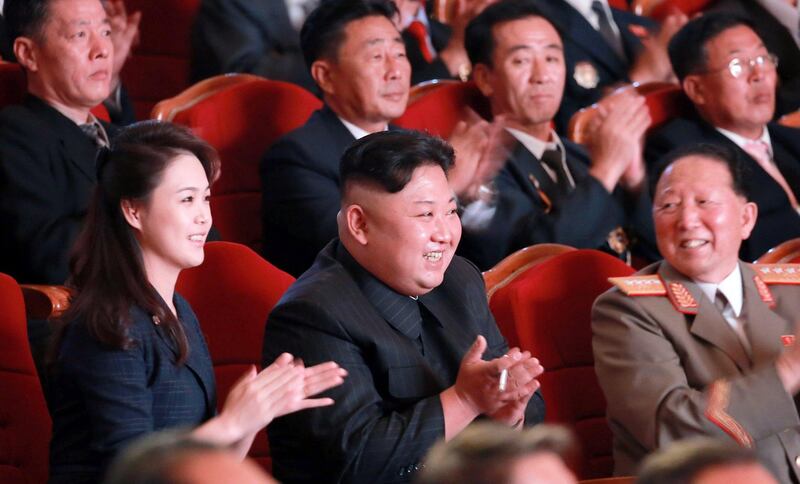“Enough is enough,” said the US ambassador to the United Nations' Nikki Haley concerning North Korea’s nuclear weapons tests.
A draft security council resolution circulated by the US includes an embargo on the country’s oil imports. The South Korean president Moon Jae-in has supported the idea of petroleum sanctions.
North Korea does not produce oil or gas, although it has some geological signs of deposits. A maverick UK company, Aminex, negotiated oil exploration rights there but gave up in 2012, while more recently an obscure Mongolian firm, HBO, offered potential partners the chance to review geological data.
The country does, though, have large reserves of coal and sells the dense, black form anthracite to China, making up almost half of its entire export earnings in 2013. UN sanctions imposed last month would cut its sales of coal, iron, lead and seafood. The implication is that about 17.5 million tonnes of annual coal production now cannot be exported.
In 2015, China reportedly sent about 5.4 million barrels of crude oil and refined products to Pyongyang, and Russia another 1.2 million barrels, according to comments by the Russian president Vladimir Putin. With a small economy, little private transport and trucks converted to burn wood, North Korea’s total oil consumption is tiny, equivalent to some 18,000 barrels per day, 2 per cent of the UAE’s use.
Such an amount could be smuggled in from China or Russia. Whatever the central government might dictate, regional Chinese authorities do not always obey. But if they would not supply, North Korea could explore for its own oil and construct plants to turn its abundant coal, or crops, into fuel.
The more a blockade bites, the more likely the country’s leadership would push ahead with coal liquefaction technology, already in use in China and straightforward compared to its nuclear and missile developments. It would, at some cost, become impervious to further pressure and might even gain in ability to supply its military. The Americans would thus repeat the British mistake of the First World War, as historian AJP Taylor described it, virtually fortifying against themselves the position they might plan to attack. Ordinary citizens might suffer from lack of light, heat and transport but the regime has never shown much concern for their welfare.
_______________
Read more:
China's CEFC buys into Russian oil major Rosneft
The strange rise of coal in the Middle East
_______________
There is little prospect, then, that an oil embargo on Pyongyang would cripple its economy or force it to the negotiating table. Mr Putin has indicated that he believes it would be ineffective and mostly harm ordinary people. His country’s own experience is not likely to encourage him to back petroleum sanctions as a tool of American policy. As for China, despite its frustration with Kim Jong-Un’s regime, it is likely to seek an exemption in oil supplies on humanitarian grounds. It does not wish to lose leverage, which it might apply by unilaterally reducing oil shipments to Pyongyang when it judges the time ripe. China and Russia are both veto-wielding powers on the UN Security Council.
The US has been willing for a long time to employ energy sanctions against adversaries: the Japanese before the Second World War, the Soviet Union over high-specification steel for gas pipelines to Europe, and Iran following its 1979 revolution.
Recently, with domestic oil and gas output rising sharply and less concern about rising prices or its own imports being cut off, the White House has turned even more readily to energy sanctions. It encouraged other countries to eliminate or cut their purchases of Iranian oil to coerce it into negotiations over Tehran’s nuclear programme. It imposed various restrictions on Russia’s access to petroleum technology and investment after the Kremlin’s seizure of Crimea in 2014, while touting its own liquefied natural gas exports as an alternative to Russian gas exports to Europe.
But the US risks wearing out the utility of sanctions through over-use and its recent inability to conclude or stick to diplomatic solutions.
The paradox of sanctions - particularly those on a country’s imports - is that, useful in the short term, they render themselves ineffective in the long term. Firstly, they inspire the target to make itself self-sufficient. Attempts to block Iran’s import of petrol led it to expand its refineries, so that it now meets most of its own demand. Russian companies have sought to develop indigenous petroleum technology.
Secondly, sanctions destroy the private economy while empowering a corrupt elite, which is usually the source of the political bad behaviour that has attracted outside powers’ ire in the first place. The expansion of Iran’s Revolutionary Guards from smuggling into engineering for the oil sector is one example.
It is hard to assess the economy of such a closed society as North Korea. But researchers such as Byung-Yeon Kim, a professor at Seoul National University, have suggested the private economy is growing, while still technically illegal. Eventually, this might trend to a Chinese-style liberalisation and regime moderation, if not undermined by deeper blockade and economic collapse.
Thirdly, if American sanctions too often collide with the aims or methods of China, Russia or Europe, these states will develop their own institutions and shelter their domestic companies. Multilateral oil sanctions eventually worked against Iran, under the US president Barack Obama. But the conditions with North Korea are much less favourable. The oil weapon, if used too often, loses its edge.
Robin M Mills is CEO of Qamar Energy, and author of The Myth of the Oil Crisis






